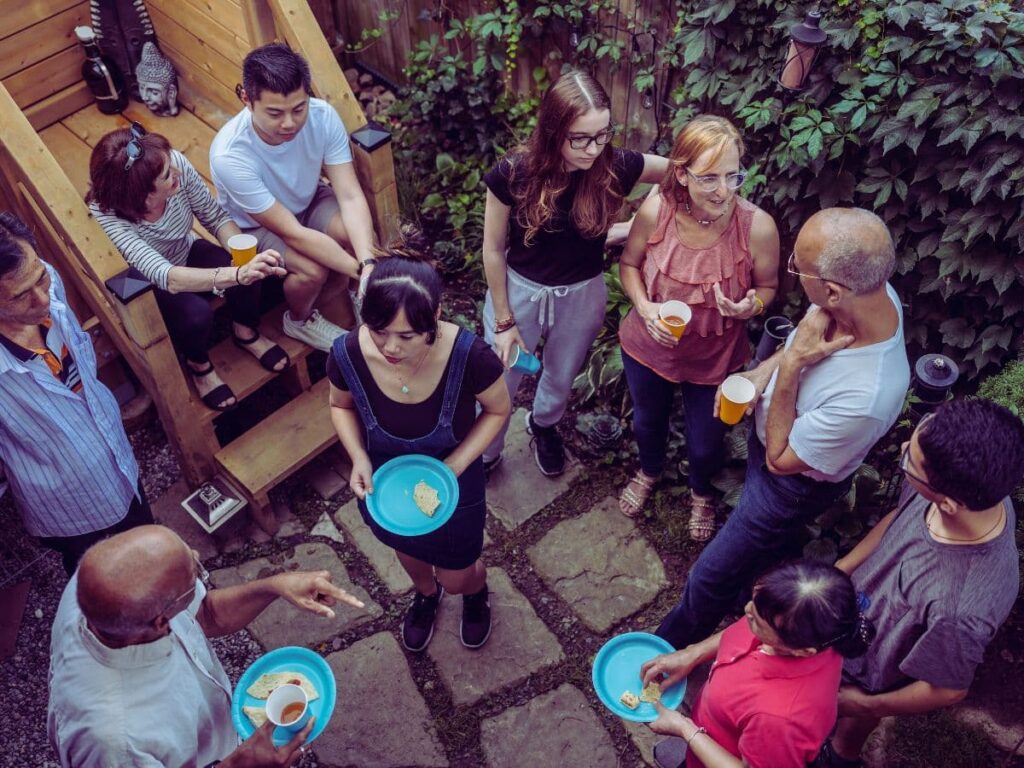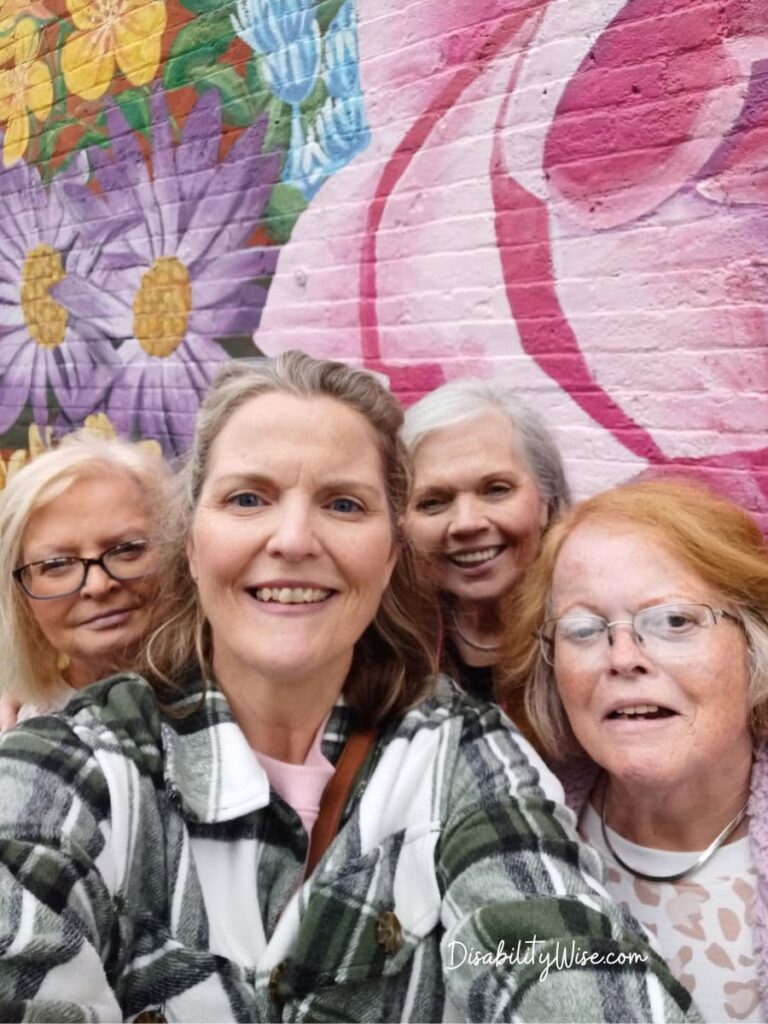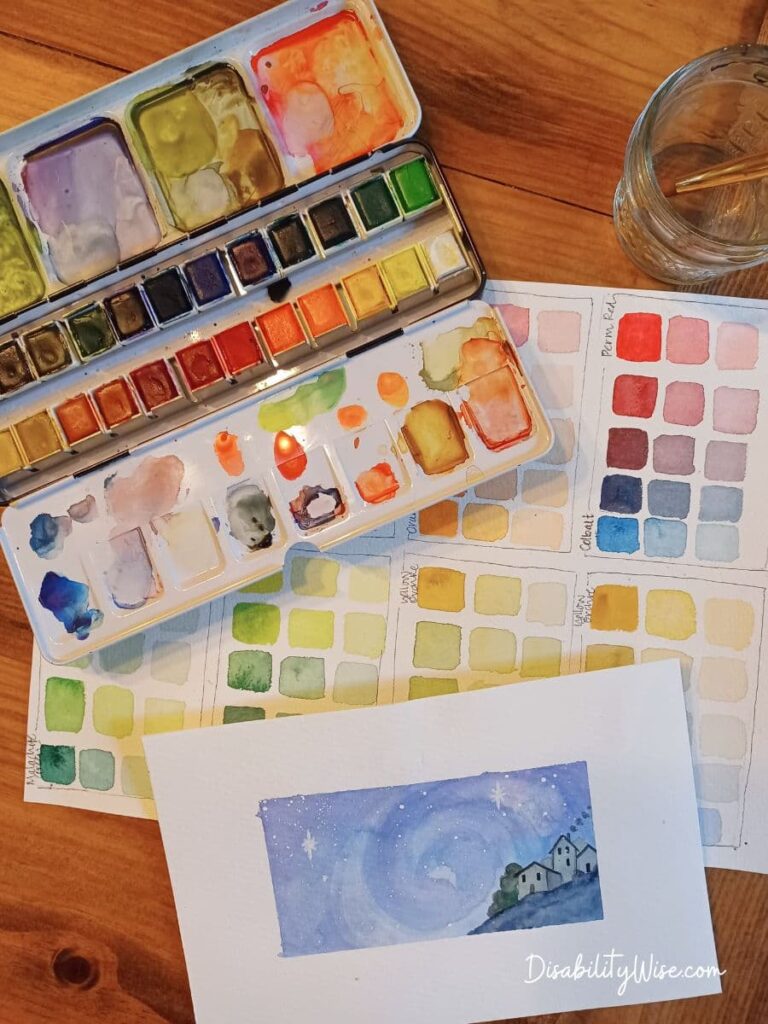Do you feel overwhelmed sometimes with the loneliness and isolation that can come with being a caregiver? Let’s be honest, at times, this life can be hard. It can feel like no one gets what you’re going through, making you feel cut off from the rest of the world.
Being a caregiver can sometimes make us accidentally drift away from the people around us. So, how do we juggle our caregiving roles and still stay connected with the world? Let me share some tips I’ve found helpful.
Create a Local Community
If you’ve followed my blog, you’ve likely heard me say how important it is to connect with other families and caregivers of children with disabilities. There’s comfort in being surrounded by those who truly understand your experiences and ‘get it’.
There’s no need to explain why your child is jumping up and down while flapping his hands or apologize for running late because your teenage daughter couldn’t leave home without her favorite baby doll. They understand. They’ve been there.
I engage both online and around town in the disability community. Both have played an important role in my journey with our son. But unlike online spaces, my local connections do a better job of keeping my isolation in check.

How to Connect Locally
- If your child is still in school, I’ve found connecting with other parents in your child’s class a great place to start. In the past, I would reach out to my son’s teachers and find out which classmates he connected with. I would then ask the teacher to share my contact information with the parents of the children. It helped with arranging playdates and meeting other families. Just like that, you’re on your way to starting a community.
- Check out local groups focused on your child’s disability. Organizations like the Autism Society and the Down Syndrome Society have local chapters near you. You’ll soon be mingling with other families in your area.
- Join a local online mom’s group. My local mom groups have been great for staying in touch with our local disability community. Plus, one group even sets up fun meet-ups for moms to hang out!
No matter if you kick things off in-person or online, if possible, try to make those local connections,
Join Online Support Groups
Local disability communities are great, but if meeting in person isn’t convenient or just doesn’t fit your routine, online communities can be another way to connect. Online forums, parent groups, virtual events, and workshops can provide a safe space for sharing experiences and getting advice from others who understand your struggles.

A blog like Finding Cooper’s Voice offers a paid subscription to a parent group called Coop’s Troops where parents can share their stories and experiences in a safe, private platform. There are also Facebook groups like The Autism Dad’s Special Needs Parenting and Tales from an Educated Debutante’s Tales Moms of Special Kids, which offer free platforms.
If you’re looking to engage with a community that supports a range of disabilities, consider joining The Mighty or The Arc. These platforms are a great place for asking questions and getting advice from fellow parents and caregivers.
Truly, when it comes to online communities, the possibilities are endless!
Share with Family and Friends
Sharing what we’re going through with family and friends gives them a peek into our world, even if they don’t fully get it. Sometimes, just having someone listen can make all the difference, transforming feelings of isolation into a shared journey. It’s like inviting them to walk alongside us, learning and growing together.

It’s true, there will always be those who either can’t or choose not to understand. But, from my personal experience, it’s not that family and friends don’t care; rather, when I don’t share my thoughts, they assume I have everything under control. If we fail to communicate our needs and desires, others simply won’t know them. I’m still working on this one.
Speak up! Whether it’s sharing your day or asking for occasional check-ins, make sure to communicate with your loved ones and friends. Keep the conversation going. After all, isn’t that how we create a world that’s a little more understanding and a lot more loving?
Focus on Your Mental Well-being

I’ll be honest, being a caregiver can sometimes be emotionally draining. Pair that with having a natural aversion to people (true introvert here), and the idea of socializing can feel overwhelming to me.
So, before we can consider engaging with others, some of us need to prioritize our mental health first.
It doesn’t need to be extravagant; even small gestures can make a difference. These simple and quick self-care tips can assist you in recharging, feeling your best, and getting back into the world again.
Share Your Interest With Others

Recently, I started painting again. It’s been quite a while since I picked up a brush (like 33 years 😳), but who’s counting. Challenging myself has been so fun!
Taking time for activities that bring us joy can help us maintain our sense of self beyond our caregiver responsibilities. What interests take you to a happy place? Whether it’s painting, gardening, reading, or dancing, embrace those passions and make time for them!
Jump back into your hobbies, and you might just find yourself joining a club or class, whether it’s online or in-person. It’s a great way to meet new friends and create a community with folks who love the same stuff you do.
So, be intentional. Carve out some time for the stuff that makes you happy. It’s not selfish—it’s key to your well-being and brings you closer to reconnecting with others.
Final Thoughts
Handling caregiving and life can be a real juggling act. I hear you! But sneaking in a bit of time each week to reconnect can really help you get back into the swing of things. Even 10 or 15 minutes is enough to make a positive difference. Give it a shot. You’re doing great!
What are some ways you have found helpful to reconnect? Be sure to leave a comment.
SHARE ON:


